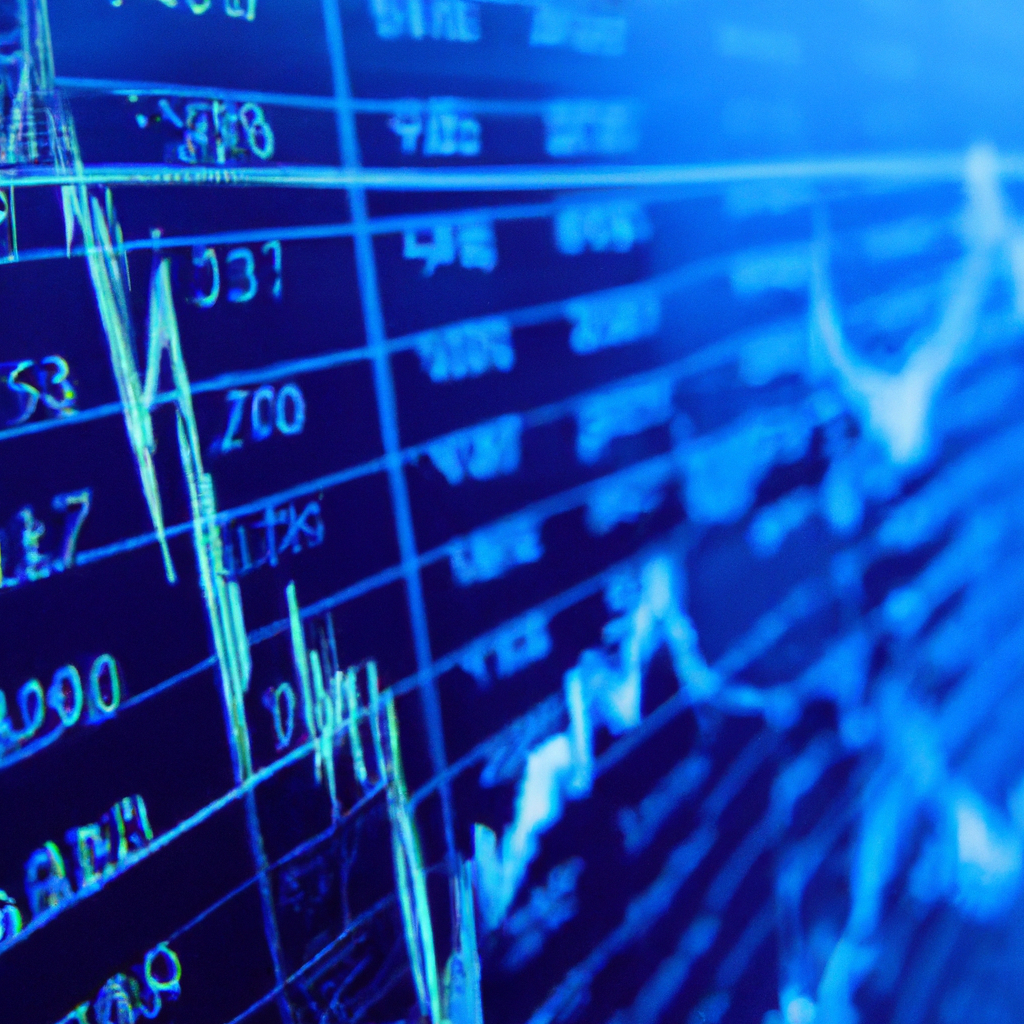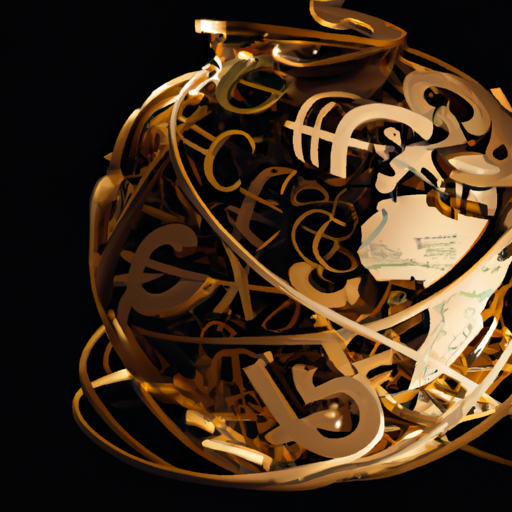Oil and Diesel Prices Rising
Impact on Currency Markets
One of the key international events that can significantly affect currency markets is the rise in oil and diesel prices. Fluctuations in energy costs have a direct impact on the value of currencies around the world. The recent increase in these prices is expected to have repercussions on several major currencies, including the dollar, the euro, and the rouble.
Reasons for Increase
The main reason behind the rising oil and diesel prices can be attributed to the actions of Saudi Arabia and Russia. Their decisions regarding production levels and market strategies can have profound effects on global energy markets. As a result, the value of currencies in countries heavily dependent on oil and diesel revenues can be greatly influenced.
Role of Saudi Arabia and Russia
Saudi Arabia and Russia, being two of the largest oil-producing nations, play a vital role in shaping the global energy landscape. Their policies and actions can lead to market fluctuations, driving up prices and impacting currency markets worldwide. As a consequence, countries that heavily rely on oil imports or exports may experience currency depreciation or appreciation, depending on the dynamics of these international events.
The rise in oil and diesel prices driven by Saudi Arabia and Russia is a significant international event that is likely to affect currency markets. The consequences of these events on currencies can be far-reaching, making it essential for investors and traders to closely monitor their developments.
Impact on the Rouble
Weakening of the Rouble
With rising oil and diesel prices primarily caused by Saudi Arabia and Russia, it is expected that the Rouble will weaken compared to other major currencies such as the dollar and the euro. While this may not seem alarming at first glance, it does have significant implications for the Russian population. As the Rouble weakens, the cost of energy will increase for the average Russian citizen. This means that when winter arrives, they may face even higher expenses to stay warm, especially if temperatures are already low in Germany. The Rouble’s vulnerability in comparison to other currencies positions it as a mere serf when the dollar remains the ruler of the currency market.
Comparison with other Currencies
In assessing the impact of international events on currency markets, it is crucial to consider how the Rouble fares against other leading currencies. While the Rouble is expected to weaken, it is important to note that the dollar and the euro are likely to remain more stable and competitive. Therefore, the Rouble’s depreciation may not have as severe consequences on global currency markets, as it primarily affects the Russian economy rather than causing a widespread international currency crisis.
Consequences for Russians in Winter
The weakening of the Rouble during the winter season holds significant implications for the Russian population. As energy costs increase, ordinary citizens may face challenges in affording heating expenses. This is especially concerning if Germany experiences particularly cold temperatures, as Russians will encounter even harsher conditions. The financial impact of rising energy prices will likely burden households, reinforcing the need for careful financial planning and preparedness. The consequences of these international events are far-reaching, emphasizing the importance of monitoring currency markets and their effects on everyday life.
Putin’s Knowledge and Plans
Awareness of the Issue
When it comes to international events likely to affect currency markets, it is crucial to analyze the knowledge and plans of key players, such as Vladimir Putin and his advisors. Recent diesel price rises have been causing concern, especially due to the involvement of Saudi Arabia and Russia. However, it is worth noting that these actions are more likely to impact the Rouble rather than major currencies like the dollar and euro.
Plan A: Introduction of BRICKS Currency
Putin and his advisors have explored different strategies to counterbalance the potential weakening of the Rouble. Plan A involved the introduction of a new BRICKS currency backed by gold. By creating a competitive alternative to the dollar and euro, this plan aimed to provide a more stable foundation for the Rouble and safeguard Russia’s financial interests.
Plan B: Backing the Rouble with Gold
Alternatively, Plan B was more radical, proposing the backing of the Rouble with gold. This approach sought to establish a strong and tangible asset, reinforcing the Rouble’s value and solidity on the global market. While this plan may seem significant, it is important to consider that in the grand scheme of things, backing a currency with gold has minimal financial impact compared to the vastness of the global economy.
Putin and his advisors are well aware of the potential consequences of rising diesel prices brought about by Saudi Arabia and Russia. Their plans to introduce a BRICKS currency or back the Rouble with gold reflect their proactive approach to protect Russia’s currency and stabilize the economic landscape. These strategies not only speak to Putin’s knowledge but also demonstrate his understanding of the complexities inherent in international events that can impact currency markets.

## Gold Price and Currency Markets
Relationship between Gold Price and Currency Markets
One of the international events that can significantly impact currency markets is the fluctuation in gold prices. The relationship between gold prices and currency markets is complex and interconnected. Changes in gold prices can have a ripple effect on the value of major currencies such as the dollar, euro, and others.
Gold is often seen as a safe-haven asset during times of economic uncertainty or geopolitical tensions. When investors lose confidence in the stability of currencies, they tend to flock to gold as a store of value. As a result, when gold prices rise, it can signal a weakening or perceived risk in the global economy, causing investors to move away from currencies and into gold.
Conversely, a decrease in gold prices can indicate improved economic conditions, leading investors to shift back into currencies. Central banks, including the Federal Reserve, closely monitor gold prices as they may affect monetary policies and currency exchange rates.
In addition to overall economic conditions, other global factors such as political events, trade tensions, and natural disasters can also influence gold prices and subsequently impact currency markets. It is important to stay informed about these international events to understand potential risks and opportunities in currency trading.

## International Events and Financial Markets
Interplay between International Events and Financial Markets
International events have a significant impact on currency markets, as they influence the value and exchange rates of different currencies. One such event is the rising oil and diesel prices, which can be attributed to Saudi Arabia and Russia. This development is expected to have varying effects on currencies, with the Rouble likely to weaken in comparison to other major currencies like the dollar and the euro.
The increase in energy costs due to rising oil and diesel prices will have repercussions for the Russian economy. When temperatures drop in countries like Germany, Russians will experience even colder winters, highlighting the potential consequences of these international events.
It is clear that leaders like Putin and his advisors are well aware of these circumstances. They have explored multiple strategies to counter the impact on their currency. Plan A involved introducing a new BRICKS currency backed by gold, while Plan B took a more radical approach of backing the Rouble with gold. However, these efforts are unlikely to have a substantial impact on the currency market as the dollar remains the dominant force.
It is crucial to closely monitor international events to gain insights into currency market movements. The interplay between these events and financial markets can shape the value of currencies, impacting economies worldwide.
Role of Saudi Arabia
Saudi Arabia plays a crucial role in the global currency markets, and its actions have a significant impact on various currencies, including the dollar, euro, and the Russian ruble. As one of the world’s largest oil producers, any changes in Saudi Arabia’s oil production can directly influence the value of currencies.
Influence on Currency Markets
When Saudi Arabia, along with Russia, decides to increase oil production, it leads to a rise in oil prices globally. This increase in prices affects the currency markets, as higher energy costs can have adverse effects on a country’s economy. For instance, when the cost of oil and diesel rises, it puts pressure on the Russian ruble, making it weaker compared to other major currencies like the dollar and euro.
Oil Production and Currency Markets
Since oil is a crucial commodity and its prices are strongly linked to currency values, any fluctuations in oil production by Saudi Arabia can trigger volatility in the currency markets. The demand and supply dynamics of oil affect not only individual country currencies but also impact the global financial markets.
Saudi Arabia’s role as a major oil producer has a significant influence on currency markets. Any changes in oil production can cause shifts in the values of currencies worldwide, making it necessary for investors and traders to closely monitor international events related to Saudi Arabia and their potential impact on the currency markets.

This image is property of pixabay.com.
## Role of Russia
Russia plays a crucial role in the global currency markets due to its actions and policies. The recent increase in oil and diesel prices, largely driven by Saudi Arabia and Russia, is expected to have an impact on various currencies. However, it is important to note that these actions are more likely to weaken the Rouble compared to other important currencies such as the dollar and the euro.
Reasons for Actions in Currency Markets
The decisions made by Russia in the currency markets are not without purpose. It is evident that Russian President Putin and his advisors are well aware of the potential consequences. They have considered different strategies to make the Rouble and other currencies more competitive.
Plan A involved the introduction of a new BRICKS currency, backed by gold, which aimed to increase the competitiveness of the dollar and the euro against the Rouble. However, Plan B, a more radical approach, included backing the Rouble with gold. While both plans indicate the desire for a stronger currency, the impact would be relatively limited.
The actions taken by Russia in the global currency markets have the potential to affect not only the Rouble but also other major currencies. Understanding these events and their implications is crucial for anyone involved in international financial markets.

This image is property of pixabay.com.
## Dollar as the Ruler of Currencies
Dominance of the Dollar
When it comes to international events that can impact currency markets, it is crucial to acknowledge the dominance of the US dollar. The dollar plays a significant role in influencing currency fluctuations around the world. As the world’s primary reserve currency, many countries rely on it for international trade and as a benchmark for their own currencies.
The strength or weakness of the dollar can have far-reaching consequences for global financial markets. For example, recent increases in oil and diesel prices, driven by actions taken by Saudi Arabia and Russia, are more likely to impact the Rouble more than other major currencies like the dollar or the euro. This means that energy-dependent countries such as Russia may experience adverse effects on their economy, while other countries may be less affected.
Effects on Other Currencies
While the dollar remains dominant, other currencies are not immune to international events. Changes in economic policies, political stability, or even natural disasters can all have implications for currency markets. In times of uncertainty, investors may seek safe-haven currencies such as the Japanese Yen or the Swiss Franc, causing them to strengthen against other currencies.
It is essential for investors, businesses, and individuals to stay informed about international events that can potentially impact currency markets. By monitoring these events and understanding their potential consequences, you can make informed decisions when it comes to currency exchange and international transactions. Being aware of these factors can help you navigate the currency markets more confidently.
Introduction of BRICKS Currency
The introduction of a new BRICKS currency, backed by gold, has the potential to significantly impact the global currency markets. This move is aimed at making the dollar and euro more competitive with the Russian Rouble. Both Putin and his advisors are aware of the repercussions of rising oil and diesel prices and their effect on the Rouble.
Anticipated Impact on Dollar and Euro
The introduction of the BRICKS currency is likely to have differing effects on the dollar and euro. While it may make the dollar more competitive, the same cannot be said for the euro. This is an important consideration for investors as they navigate the ever-changing currency markets.
Competitiveness with Rouble
One of the primary goals of introducing the BRICKS currency is to directly compete with the Russian Rouble. By backing this new currency with gold, it aims to weaken the Rouble, which could have repercussions for not only Russia but also countries dependent on their energy exports.
It is imperative for individuals and businesses involved in currency trading to closely monitor these international events, as they have the potential to impact not only the currency markets but also the price of gold and financial markets as a whole. Stay informed and proactive to navigate the ever-shifting terrain of the currency markets.

This image is property of pixabay.com.
## Backing the Rouble with Gold
Radical Plan to Stabilize the Rouble
In light of the rising oil and diesel prices primarily caused by Saudi Arabia and Russia, international events are likely to affect currency markets, determining the gold price and impacting financial markets worldwide. This development presents a crucial issue that Putin and his advisors are fully aware of. Two major plans have been considered to address this challenge.
Plan A involves the introduction of a new BRICKS currency, backed by gold, aiming to increase competitiveness against the US dollar and the euro. By implementing this strategy, it is anticipated that the rouble’s position in the currency market will be strengthened.
Plan B, considered more radical, proposes backing the rouble directly with gold. This move aims to provide a stronger foundation for the Russian currency, much like dropping a penny in terms of monetary significance. By utilizing this method, Russia hopes to stabilize their currency amidst fluctuating energy costs and potential depreciation.
Comparison with Dropping a Penny
The notion of backing the rouble with gold can be seen as comparable to dropping a penny in monetary value. While seemingly insignificant, this action has the potential to greatly impact currency markets, especially when considering the global rise in energy prices. By linking their currency to a tangible asset such as gold, Russian authorities believe they can secure the stability of the rouble in the face of economic uncertainty.
In conclusion, the international events unfolding, particularly the rising oil and diesel prices caused by Saudi Arabia and Russia, are likely to have far-reaching effects on currency markets. The proposed plans to stabilize the rouble through the introduction of a new currency or backing it directly with gold demonstrate the Russian government’s commitment to maintaining a resilient financial system during these challenging times.



